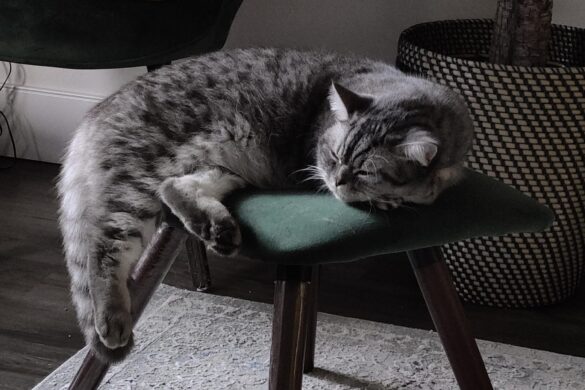The world is moving towards more collaboration, as you might have noticed. Sharing, compassion, and open communication are underway and are much more integrated into all walks of life nowadays. In Healthcare this is no exception. Also, don’t these values sound familiar? familiar to what exactly?!
With that in mind, I remember one of the administrators, a manager, who was also a peer, introduced me to the pharmacy team as; The pharmacy family!
“That’s cool!”
Curious I was to know how this family functions.
There were two main assistants, and I was the responsible pharmacist in charge. And for those who might not know, in Canada, pharmacy assistants are not licensed professionals, they learn the pharmacy dynamics through -on the spot- training and experience. Some of them attend ten months to a one year program to learn the basics and earn a certificate, but the vast majority will be informally trained in the pharmacy. Some assistants use the title “technician” to indicate the position’s technicality, but a formal pharmacy technician, on the other hand, is legally regulated by the college of pharmacists.
One of the assistants was pretty reserved and pulled back, and who’s been here for a few years now. The other newer one was the complete opposite; impulsive and raw, he was here for a year or a little more.
A year plus is a long period of time to foster and train an employee.
I was also told:
To each their own
I wondered about their parenting style. About how their manger raised them up in this job sphere?
This pharmacy setting is a critical one, that required extra attention and concentration.
” Would this be a functional and professional family? Do they facilitate the carriage of responsibility and understand boundaries?” I wondered.
As I looked further to types of parenting and their effects on child behaviour. I discovered that there are usually two manifestations of behavioural adjustment:
– Internalizing, or emotional, behavior problems often refer to anxiety and depression (Akhter et al., 2011).
– Externalizing, or disruptive, behavior problems commonly include attention-deficit hyperactivity disorder and conduct problems (Akhter et al., 2011).
This is exactly what these two assistants manifest in their job behaviour!
But they are not children, they are adults. They are not in a biological developing stage, and there is no biological relationship to compare a real family with a faux pharmacy family. Isn’t it?
Well, there is a parallel relationship between the two. Both have members with an authority figure. Both have varying degrees of developing stages (training, certification, and expertise).
Now, one of the main characteristics of a healthy family is this:
There are clear boundaries in the family. Parents take the leadership role. They recognize their responsibility is to train and to teach their children.
http://pfl.org/article/characteristics-of-a-healthy-family/
So, to each their own, did not quite resonate with me professionally, because, as a healthcare professional, my whole career revolves around discipline. While not endorsing hypocrisy, we are not trying to be someone else, but rather align our personal attributes with the professional ones through discipline, the best we could to reach our purpose and to serve.
As with parenting; in healthcare teams, and also other industries, behaviour, and conduct can be modified through effective communication and training. Training and discipline have proven effective in achieving the desired goals:
This pool of studies included a total of 50 interventions from 32 studies. It was shown that teamwork interventions had a significant, large effect on team performance
https://journals.plos.org/plosone/article?id=10.1371/journal.pone.0169604
There are two dimensions of parenting behavior; and for the purpose of our discussion here, we’ll adapt the above term into human resources management behavior:
Demandingness refers to the extend parents control their children’s behavior or demand their maturity.
Responsiveness refers to the degree parents are accepting and sensitive to their children’s emotional and developmental needs.
https://www.parentingforbrain.com/4-baumrind-parenting-styles/
Diana Baumrind who was a developmental psychologist in the 1960s;
discovered that there were 4 basic elements that contributed to the formation of a successful parenting relationship. Parents had to evaluate responsiveness vs being unresponsive and being demanding vs an undemanding approach. Each parent evaluates every interaction with their children using some degree of all four elements.
https://healthresearchfunding.org/baumrind-theory-explained/
That meant parents shouldn’t be “aloof,” but they should not be punitive either. Baumrind found that the most successful parents needed to develop rules for children to follow while having the courage to be affectionate with them regularly. Any inconsistencies or negative communication, such as setting a vague rule or being reactive instead of proactive, could alter the parent-child relationship.
https://healthresearchfunding.org/baumrind-theory-explained/
Maccoby and Martin also contributed by refining the model in the 1980s.
So, according to social psychology, there are four different types of parenting:
1. Permissive Parenting (Indulgent)
Low demandingness. High responsiveness
Permissive parents set very few rules and boundaries and they are reluctant to enforce rules.
These indulgent parents are warm and indulgent but they do not like to say no or disappoint their children.
Children of permissive parenting tend to have the worst outcomes:
- Cannot follow rules.
- Have worse self-control.
- Possess egocentric tendencies.
- Encounter more problems in relationships and social interactions.
Example: Think about an employee who stayed in their position for a long time, combined with a lack of supervision and high responsiveness to their demands, because the business owner is too busy doing other businesses, and trusting this individual to run their business. Think of the wrong person in the wrong place. It happens, all the time. Very bad.
2. Neglectful Parenting (Uninvolved)
Low demandingness. Low responsiveness.
Neglectful parents do not set firm boundaries or high standards.
They are indifferent to their children’s needs and uninvolved in their lives.
These uninvolved parents may have mental issues themselves such as depression, or physical abuse or child neglect when they were kids.
Children raised by neglectful parents:
- Are more impulsive.
- Cannot self-regulate emotion.
- Encounter more delinquency and addictions problems.
- Have more mental issues — e.g. suicidal behavior in adolescents.
Example: Think of an employee who stayed in their position for a long time, with a lack of supervision and lack of responsiveness, combined with a mental illness. This scenario was witnessed, the least to say, a disaster.
3. Authoritarian Parenting
High demandingness. Low reponsiveness.
High levels of parental control and low levels of responsiveness are the two characteristics of authoritarian parents.
Although authoritarian parenting and authoritative parenting styles have similar names, they have several important differences in parenting belief, demand and approach.
While both parental styles demand high standards, authoritarian parents demand blind obedience using reasons such as “because I said so“. They only allow one way communication through rules and orders. Any attempts to reason with them are seen as backtalk.
These parents use stern discipline and often employ harsh punishment, such as corporal punishment, as a way to control children’s behavior. Their disciplinary methods are coercive, i.e. arbitrary, peremptory, domineering, and concerned with marking status distinctions.
Authoritarian parents are unresponsive to their children’s needs and are generally not nurturing. They usually justify their mean treatment of their kids as tough love.
Children whose parents have an authoritarian parenting style tend to:
- Have an unhappy disposition.
- Be less independent.
- Appear insecure.
- Possess low self-esteem.
- Exhibit more behavioral problems.
- Perform worse academically.
- Have poorer social skills.
- Be more prone to mental issues.
- Be more likely to have drug use problems.
- Have worse coping mechanisms.
4. Authoritative Parenting
High demandingness. High responsivenss.
Authoritative parents have high expectations for achievement and maturity, but they are also warm and responsive.
These parents set rules and enforce boundaries by having open discussion, providing guidance and using reasoning.
These parents provide their kids with reasoning and explanation for their action. Explanations allow children to have a sense of awareness and teach kids about values, morals, and goals.
Their disciplinary methods are confrontive, i.e. reasoned, negotiable, outcome-oriented, and concerning with regulating behaviors.
Authoritative parents are affectionate and supportive. They provide their children with autonomy and encourage independence.
They also allow bidirectional communication. This parenting style is also known as the democratic parenting style.
Children of authoritative parents are cherished.
Based on Baumrind’s research on parenting styles, children of authoritative parents tend to:
- Appear happy and content.
- Are more independent
- Are more active.
- Achieve higher academic success.
- Develop good self-esteem.
- Interact with peers using competent social skills.
- Have better mental health — less depression, anxiety, suicide attempts, delinquency, alcohol, and drug use.
- Exhibit less violent tendencies

The temperament of each individual also plays a role in style choice and driven outcomes, but what we know for sure, is that Authoritative style has consistently proven most effective, regardless of other factors. [3]
The results from the current review provide evidence that training teams with regard to social support and interpersonal conflict management processes may actually be a useful way to enhance team performance. While the exact reason for this effect is not immediately clear from this review, it may be that improving interpersonal dynamics has an indirect relationship with team performance. That is, teamwork training focused on improving social support and conflict management may improve the functioning of a team, which, in turn, improves the team’s performance.
https://journals.plos.org/plosone/article?id=10.1371/journal.pone.0169604
Everyone needs social support including healthcare providers in leadership. Burnout is a prevalent phenomenon amongst healthcare providers, there is a silent passive culture regarding this issue. And it is one of the reasons why healthcare team dynamics need to shift.
And finally, there are other parallel findings in both parenting and HR management:
Another component that can impact the outcome is the distinction between parenting style and parenting practice. Parenting style is the emotional climate and control in which parents raise their children. Parenting practices are specific actions that parents employ in their parenting. Even for parents with the same parenting style, they may choose to utilize different parenting practices which may affect the degree of outcomes.
https://www.parentingforbrain.com/4-baumrind-parenting-styles/
Simply lecturing about the importance of teamwork is not sufficient to create meaningful improvements in teamwork; rather, substantive positive effects can be derived by having team members engage in activities that require them to actively learn about and practise teamwork.
https://journals.plos.org/plosone/article?id=10.1371/journal.pone.0169604
As such, this article will turn meaningless if only taken for educational purposes. Not underestimating the power of this knowledge, but to reap what we sow we need to practice it, implement strategies, practice again, and follow up, consistently.
Further research on the ideal combination of teamwork dimensions (i.e., preparation and/or execution and/or reflection and/or interpersonal dynamics) targeted in an intervention would also enhance our current knowledge in terms of how to train teamwork most effectively and efficiently.
https://journals.plos.org/plosone/article?id=10.1371/journal.pone.0169604
This also means that the professional in charge of the team is the one who’s practicing on the ground. Logically the one who is more professionally, comprehensively, and practically qualified, not someone who is less qualified on the field, or someone who watches from behind the scenes, and even worse with no qualification or credentials. This is our basic agreement. Further negotiations might occur, but this is the starting standpoint. It is a simple principle, yet healthcare providers need to take lead.
New graduates,
you need to take lead
So that. Later on,
You won’t become
Heed – less.
Read a related article: Why Healthcare Providers’ Burn-out, the elephant in the room for healthcare culture?
References, citations, and attributions:
[1] Parenting Styles and Child Behavior. Jordan L. Mullins (2018). https://www.psychologyinaction.org/psychology-in-action-1/2018/4/23/k17ziyfqt1vy9tlytr9l9k48epdnur#:~:text=A%20common%20way%20of%20addressing,Maccoby%20%26%20Martin%2C%201983).&text=There%20has%20been%20extensive%20research,on%20behavioral%20outcomes%20in%20children.
[2] Characteristics of a Healthy Family. Christine Vander Wielen, MSW, CAPSW. http://pfl.org/article/characteristics-of-a-healthy-family/
[3] 4 Types of Parenting Styles and Their Effects. https://www.parentingforbrain.com/4-baumrind-parenting-styles/
[4] Baumrind Theory Explained. https://healthresearchfunding.org/baumrind-theory-explained/
[5] McEwan D, Ruissen GR, Eys MA, Zumbo BD, Beauchamp MR (2017) The Effectiveness of Teamwork Training on Teamwork Behaviors and Team Performance: A Systematic Review and Meta-Analysis of Controlled Interventions. PLOS ONE 12(1): e0169604. https://doi.org/10.1371/journal.pone.0169604








